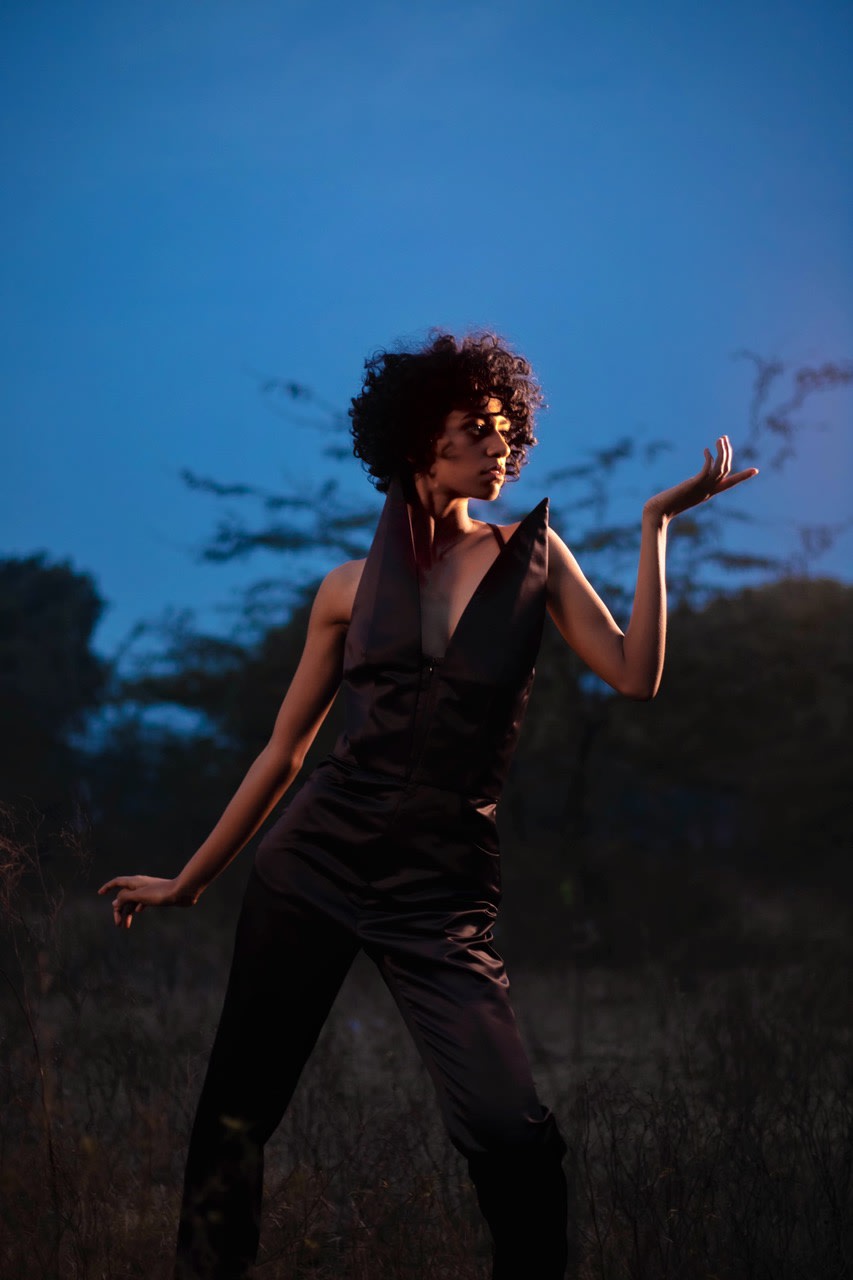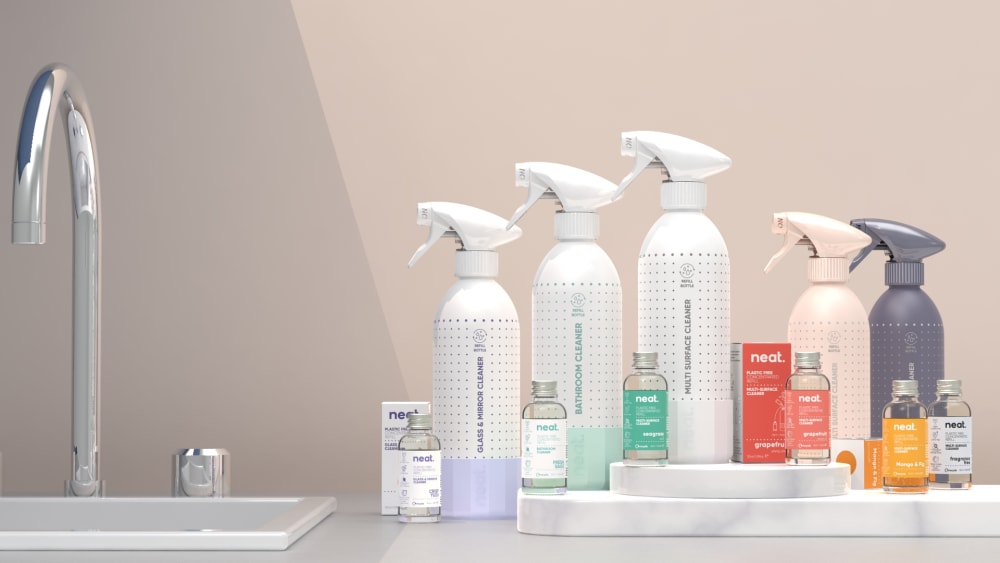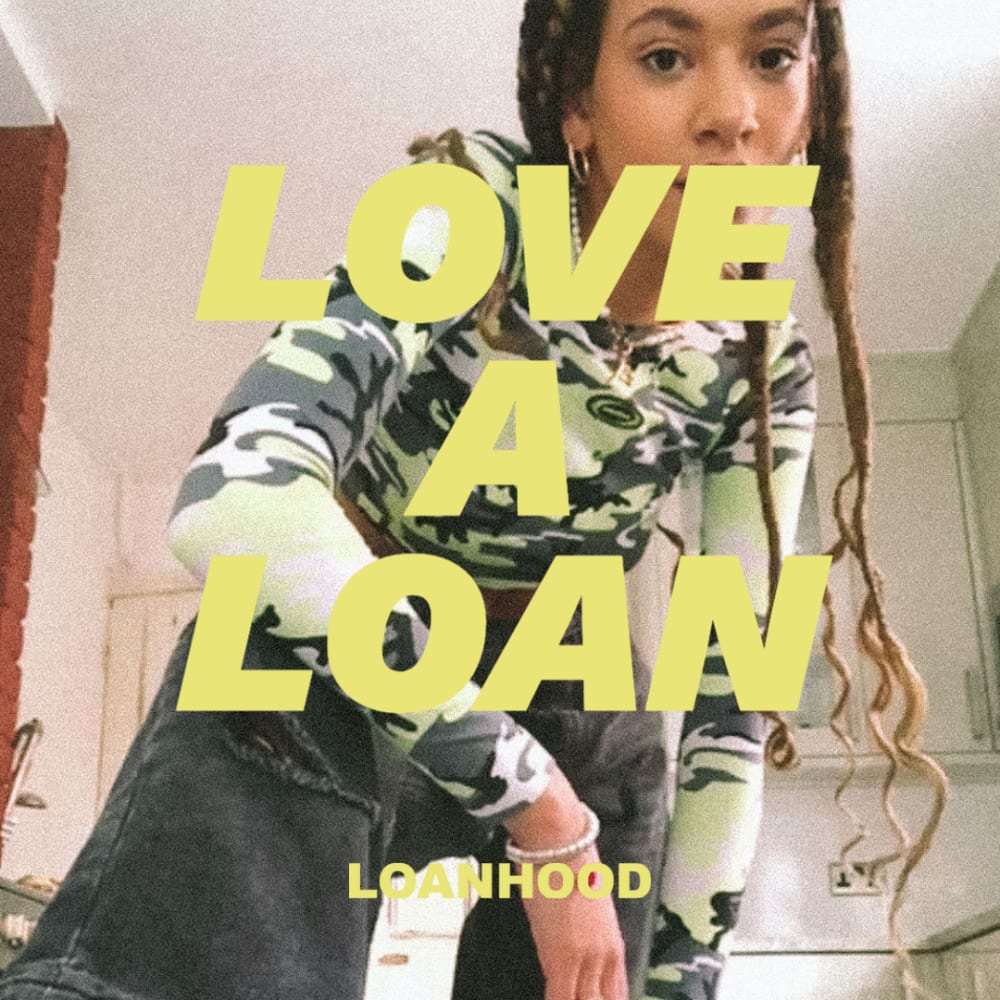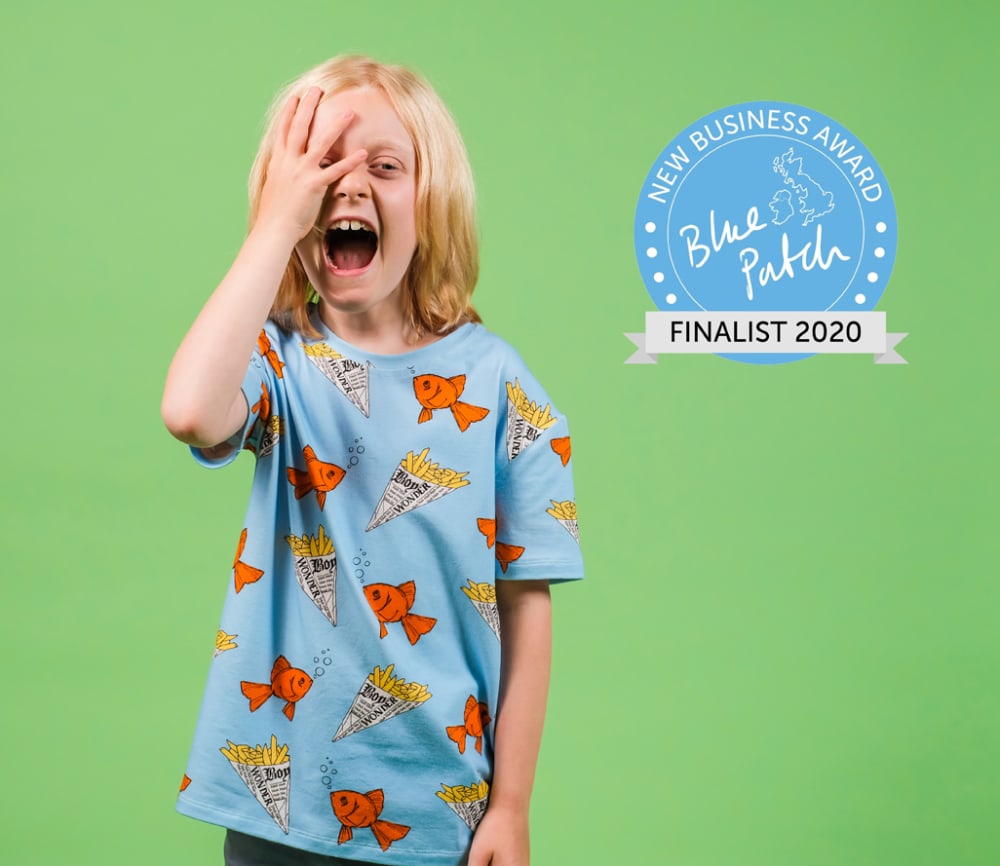Today is Earth Day, an annual event held globally on April 22, to highlight support for environmental protection. To celebrate we wanted to shine a light on some of the brands started by UAL alumni that are using their creativity to create sustainable products and challenge the status quo.
Everyone featured is part of the new UAL Sustainability Alumni Network. It's a space for graduates that focuses on sustainability and the climate emergency, and how the arts are working to combat the most pressing crisis facing the planet.
Satatland

Karishma Gupta is the Founder of Satatland, “a guilt-free, compromise-free, cruelty-free, and ownership-free circular fashion brand”. Karishma graduated from MA Fashion Entrepreneurship and Innovation, LCF in 2018. She told us a little bit about her background, and why she decided to set up her own brand.
“I am a former production and quality manager of high quantity clothing manufacturers in India, Bangladesh and Oman for fast fashion brands. My previous jobs have given me the first-hand experience of seeing the negative impact of the fashion industry on our planet. In the East, I have seen rivers turned toxic with dyes, and land devastated with pesticides to grow cotton, all for the clothes for the West which are often only worn once or twice. Because of what I have experienced I decided to start my brand in London, focused on sustainable fashion to see a positive impact in our lifetime.
“I founded Satatland to create a zero compromise fashion brand: beautiful, sustainable and ownership-free. Our designs can be rented and leased in the UK and bought globally directly from us. When your purchase is no longer required or wearable you can send it back to us for responsible reuse, upcycle or recycle for a reward. Wearing different outfits for every occasion means owning an endless overpacked wardrobe which comes at the cost of our environment, therefore, we envisioned an ownership-free future in Satatland.
“We make outfits with a vision to see a positive change in our lifetime by connecting producers, buyers, and the natural world. Our name translates to 'Sustainable Land', the utopian vision of a sustainable world where we take a holistic approach to how fashion should be produced, consumed, and disposed of”.
- Website: satatland.com
- Instagram: @satatland
Neat.

Ryan McSorley is an award-winning Industrial Designer, and the co-founder and creative mind behind sustainable homecare brand Neat.
Neat. makes design-led cleaning products that perform brilliantly, cut down on waste and deliver an amazing experience without single-use plastic and shipping unnecessary water.
Originally from Northern Ireland, Ryan now lives and works between his hometown and London, where Neat. is based. Ryan graduated from BA (Hons) Product Design at Central Saint Martins (CSM) in 2009. He then spent 6 years living and working in Shanghai as an Industrial Designer and Creative Director for various brands including Starbucks and XD Design.
He moved back to London for an opportunity to work with sustainable cleaning brands Method and Ecover where he was the Industrial Design Lead for both brands in Europe as well as building creative and product strategies globally. It was his combined experience creating reusable drinkware for Starbucks in Asia and his work in the homecare category that sparked the idea to start Neat.
Neat.’s mission is to help protect the planet by creating simple and beautiful products that inspire everyone to make sustainable choices. The powerful plant-based formulas and refillable bottles are designed to last; the products are concentrated so there is no need to ship unnecessary water, and no single-use plastics (NB: a typical bottle of cleaner is 90% water); to use you simply mix with tap water.
- Website: neatclean.com
- Instagram: @weareneat
LOANHOOD

Jade McSorley graduated from MA Fashion Futures at LCF in 2020 and is a co-founder of LOANHOOD, a new fashion rental app. Jade spoke to us about her background and her goals for the future.
“My goal is to disrupt the current fashion system to pave a pathway for a more sustainable future that will benefit environmental and mental well-being. I earned an MA with distinction in Fashion Futures from LCF, where I focused on digital transformation for fashion and identity and won the Proctor & Gamble Better Lives Award.
“I co-founded LOANHOOD, an inclusive fashion rental app, because of my own experiences in the fashion world. I've been a model for the last 12 years, which has allowed me to see the light and dark of the fashion industry. At LOANHOOD we believe fashion rental is the new norm for fashion lovers who wish to keep their love affair with fashion but are mindful of fashion's environmental impact. We are exploring ways to encourage a shift in consumer consumption behaviour within the fashion world and create value in our wardrobes.
“I also work at the Fashion Innovation Agency at LCF, where we explore emerging technology and show ways it can be applied within the fashion industry to encourage innovation, sustainability and creativity”.
LOANHOOD are currently seeking testers for the app, which will launch in spring/summer 2021. If you'd like to be one of the first Loaners and Borrowers, get in touch with Jade by emailing info@loanhood.com.
- Website: loanhood.com
- Instagram: @loanhood
- Email: info@loanhood.com
Circular Ceramics

Circular Ceramics by Sara Howard is a handmade tableware collection made from industrial waste by-products. Sara graduated from BA (Hons) Ceramic Design, Central Saint Martins (CSM) in 2020.
By applying the principles of the circular economy, Sara has designed an industrial symbiosis around the ceramics industry, whereby the waste by-product from one manufacturer becomes the raw material in ceramic production.
Many of the raw materials used today for ceramic production are expected to run out over the next 30 years, based on current rates of consumption and our known resources. In addition, England produced over 10 million tonnes of industrial waste in 2018, containing many of the finite raw materials which are becoming scarcer and already seeing an increase in price as a result. Circular Ceramics minimises the consumption of finite raw materials and diverts waste away from landfill, securing a future for the ceramics industry and our planet.
Alongside Sara’s Circular Ceramics tableware collection, she has also self-published an open sourcebook, outlining the methods of reclaiming industrial waste from the glass, stone, construction and ceramics industry. These methods can be applied to all scales of ceramic production from studio potter to mass production, providing both ecological and financial gains.
- Website: sarahowardstudio.com
- Instagram: @sara__howard
Yuyun

Michael Butler is a Graphic Designer turned tea specialist and retailer, and the co-founder of Yuyun, which sells high-quality tea from the Yunnan region in China. He graduated with BA (Hons) Graphic Design from Camberwell in 2016. He told us more about the ideology behind Yuyun.
“I left university with a burning passion for what I do, but without much direction, I found myself in a slump. My creative drive went from high heat to backburner. That was until I met Zora, my business partner. I found myself suddenly jumping from bar-back to Creative Director of the smallest tea business in London.
“Yuyun sells loose leaf tea and specialises in the region of Yunnan, a province in China and jointly, Zora's hometown. Steeped in a rich history and culture, it produces a robust, savoury blend with sweet notes.
“In the UK around 90 million cups of tea are drunk per day; 90% of these come in teabags and the majority of the teabags are made from plastic. While proven safe to drink, it's not the consumption, it's the waste. Companies have spent a lot of time, money, and effort to produce non-plastic teabags, so we decided not to use teabags. No industrial process, just loose leaf. Is it compostable? Yep, not a problem. Can I put it in the bin with no moral guilt? Yep, not a problem.
“Zora's heritage and culture are represented in the packaging, with modern elements such as recyclable and compostable materials. Our message is about looking inwards, looking at what we consume. It's re-learning, re-discovering, and seeing the journey. We see the history, the culture, and we ask how did ‘this’ get here? We want products to tell a story, to teach us something, and to be more than just a purchase. If you want to support us or get involved then please contact us, I'd love to chat over a cuppa”.
- Website: yuyunyunnan.co.uk
- Instagram: @yuyunyunnanofficial
- Twitter: @yuyunteashop
- Facebook: @yuyunyunnanuk
Boy Wonder

Ismay Mummery is the Managing Director of Boy Wonder, which she describes as “a sustainable design-led boys fashion brand for parents who value creative, unique style for their kids”. Ismay graduated from London College of Fashion (LCF) in 2003 with an MA in Fashion: Design and Technology.
Ismay started Boy Wonder as “a response to the lack of choice in bright, fun stereotype-free style for boys”. They address this with quirky designs that are trend-free and guaranteed to make you smile. Ismay's hand-drawn prints on British-made, certified organic cotton combine a Scandinavian print influence with British culture, featuring fish and chips, and jelly and ice cream for ages 5-10 years. The stereotype-free jersey designs give boys the opportunity to enjoy self-expression and enjoy fashion as much as girls do.
The garments are knitted, printed and made ethically in Britain just over 20 miles from the designer’s studio giving them a low carbon footprint. They are designed using circular design principles to last longer by adding in extra growth room and providing garment care guides and easy repair kits. Ismay adds, “we are due to launch our take back and resell service in May to further extend our sustainable offering”.
Boy Wonder was named as a 'Childrenswear brand to watch' by Drapers in 2019, featured in Harper’s Bazaar Brazil and shortlisted in 2019 and 2020 for the Blue Patch Sustainable New Business Award.
- Website: boywonderland.com
- Instagram: @boywonder_brand
Mercredi Jewelry

Monica Dhak graduated from BA (Hons) Theatre & Screen: Theatre Design at Wimbledon in 2016. She is the Founder of Mercredi Jewelry, which has a focus on recycling and repurposing, often using natural fibres to create statement pieces of jewellery. She spoke to us about her inspirations and how she started her brand.
“While I was at university I met some amazing people, including Jacqueline Gunn who creates jewellery out of straws. She was very encouraging and enlightening to talk to and I became more interested in designing and educated myself on how to make jewellery.
“In the past, I’ve worked in the jewellery and luxury fashion industries where I learnt how companies work about gained knowledge on how to start and run a business which made me more confident about creating my own. Mercredi Jewelry has a focus on recycling and repurposing materials, wood, broken items in small amounts or one of a kind jewellery pieces. I also offer a custom service to rework and revamp older pieces. Every piece is handmade by me with an emphasis on quality before quantity.
“For hygiene reasons, earring backs are bought brand new but everything else is handmade. I have been working on a new continuity collection that is being made from double knit cotton wool and epoxy resin to introduce different natural fibres”.
- Website: mercredijewelry.com
- Instagram: @mercredi.jewelry
#EarthDay2021
#RestoreOurEarth
#UALAlumni
Get in touch
- Follow us on Instagram: @ual_alumni
- Join the UAL Sustainability Alumni Network by emailing alumni@arts.ac.uk
- Find out about the benefits you can access as part of the UAL Alumni Association. From free events to utilising UAL’s international creative network, and receiving discounts on short courses to continue your learning

